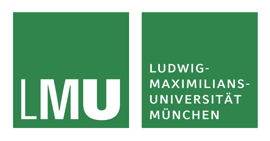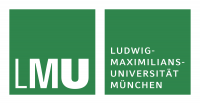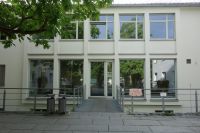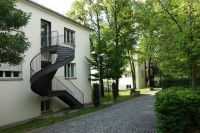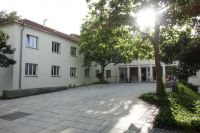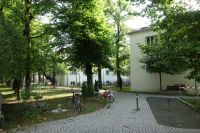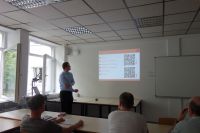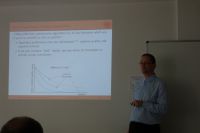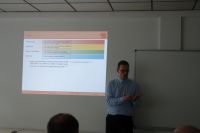On August 3, 2017, I presented my research talk Automating Scientific Research in Optimization at the Database Systems and Data Mining Group of Prof. Thomas Seidl at the Institute of Informatics an the Computational Statistics Group of Prof. Dr. Bernd Bischl who is at the Institute of Statistics, both of the Faculty of Mathematics, Informatics, and Statistics of the Ludwig-Maximilians-Universität Munich (LMU) in Munich (München), Germany. The talk was organized by Dr. Markus Mauder.
The Database Systems and Data Mining Group conducts research on data science, data mining, machine learning, artificial intelligence and database technologies. They conduct both fundamental and applied research and aim to supporting partners from many domains such engineering, business, humanities and life sciences in analyzing huge and complex data. Their research topics include explorative data analytics (clustering, outlier detection and interactive data mining), new computation models for data mining (cloud architectures, MapReduce, deep learning, GPU computing, embedded analytics), data mining for complex objects (spatio-temporal data, graphs and networks, multimedia, community detection, trajectory analysis, network queries, pattern mining, dealing with uncertain data, as well as games and sports analytics), process mining (temporal aspects in process models, event identification, process model identification, stream process mining), and similarity search. Since my presentation is mainly on applying data mining and machine learning to extract information from experiments with optimization methods, this provided good grounds for nice discussions after the presentation. They collaborate with partners like Siemens and BMW.
The Computational Statistics Group conducts research in predictive modelling (e.g., non-linear classification and regression), ensemble techniques, statistical and machine learning, statistical computing and computational statistics, model- and variable selection, expensive black-box optimization, bayesian optimization, and statistical software development. They organize the Munich City R courses, R being the one of the most important statistics software packages out there right now and is also used inside of our optimizationBenchmark software. They have contributed a huge set of awesome software packages, including, for instance, a machine learning toolbox for R and an R package for the COCO framework (one of the works related to our talk).
Prof. Bischl is furthermore one of the founders of COSEAL, the COnfiguration and SElection of ALgorithms group, an international group of researchers with focus on algorithm selection and algorithm configuration. These two topics are the exact complement of what I presented in my talk: While my system analyzes how algorithms behave and tries to find reasons (which a researcher can use to improve the algorithm), the work of COSEAL is trying to find ways to automatically find/choose the best behaving algorithms (or algorithm configuration). The group is very active and organizes workshops, competitions, and provides software and benchmark datasets on their fields. (In September 2017, I became a member of COSEAL.)
Giving a presentation at LMU with attendants from both groups was very exciting for me. I came here with the goal to broaden my horizon and to learn where these experts see merits and errors in my presented approach. The after the presentation discussion was indeed very interesting and fruitful.

